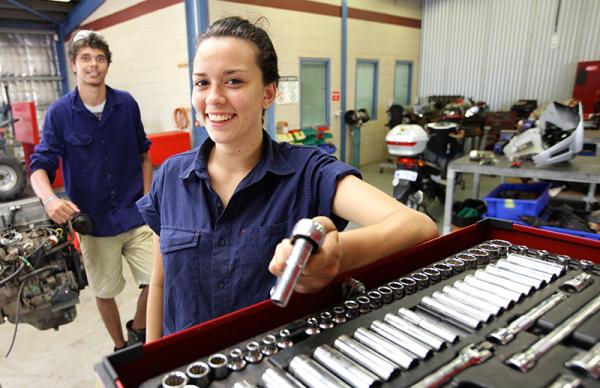
Automotive electrician
Automotive electricians install, maintain and repair electrical wiring and electronic components in motor vehicles ranging from passenger and commercial vehicles to marine, as well as in mining equipment. They dismantle and remove electrical components, adjust engine control systems, and repair and replace faulty ignitions and wiring. Automotive electricians often interact directly with a customer; asking for clarification of the problem with their vehicle, and then explaining what needs to be done.
Working conditions
An automotive electrician would normally work regular hours, Monday to Friday. Some work on weekends, and travel to customers' homes or workplaces. If they work in the mining industry, it may be on a Fly In/Fly Out basis.
Automotive electricians typically work in a workshop for a self-employed automotive electrician, vehicle dealership, service station or at a mine site. Work may be completed from within the vehicle itself, or else, at a workbench. They usually wear protective clothing.
Tools and technologies
Automotive electricians need to have a good understanding of electrical and electronic systems so that they can repair and install electrical and electronic equipment. They also need to be skilled in using hand and power tools, for example a soldering iron, drill or lathe.
Education and training
To become an automotive electrician, you usually need to undertake an apprenticeship in automotive electrician. The automotive electrician apprenticeship usually takes 42 to 48 months to complete and is available as a school-based apprenticeship.

Free support and assistance
Your local jobs and Skills Centre can provide free information, support and assistance to help you decide on the best training options to meet your goals.
Disclaimer
The information presented on the occupation profiles within this website is offered as a guide only.

